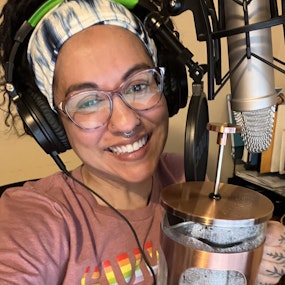Friday the 13th is here, and we all know what that means. Break out the popcorn and queue up the streaming; we’re about to watch Jason Voorhees go homicidal on some undeserving young folk. But what happens afterward? Are survivors of all these slasher flicks bogging down emergency departments across the country? We see that Alice, at the very least, survived Camp Crystal Lake to the end of our first movie, tucked in cozy in her hospital bed. But what’s happening in other hospitals?
Every group in society the world over has its own set of superstitions. Healthcare workers are not immune to this. Yes, even doctors and nurses can suffer from paraskevidekatriaphobia, a fear of Friday the 13th. It’s not just the dreaded number thirteen, though. For example, you had better not make any comments about the shift being “quiet” or “slow.” You think your mother gave you the death stare when you were acting up in church? Just wait until you say something stupid in front of the charge nurse. And you bet a phone call or text is being made to the on-call doctor about the color of scrubs they’re wearing since the last time they wore the black ones, all hell broke loose.
It’s been a long-held superstition in hospitals worldwide that certain days of the year will yield more admits and adverse outcomes. Different cultures and countries have their own beliefs, of course. Are you knocking on wood to cancel out that curse? In Italy they touch steel. In the hospital, healthcare workers will trade-off worrisome shifts. Much like you take turns with the major holidays, it’s only fair to take turns with Friday the 13th and full moons, right?
But what happens when you have to work? Believers in superstitions create their own workarounds on their units. Lucky pair of scissors, a unique way of taping that IV, or wearing your hot pink, polkadot, bikini underwear under your scrubs to perform surgery will do the trick. Believe it or not, these are real warding rituals used by some.
Is it true, though? Do we see more accidents, admits, and adverse outcomes in the hospital on superstitious days like Friday the 13th? If you ask that seasoned nurse or the emergency department doctor, they’d of course tell you yes. Unfortunately, though, the data says otherwise. Several studies have been conducted using “normal” days to compare, drawing data from various databases for days that had a full moon and even Friday the 13th. In Spain, a study was even conducted to assess the dangers of “bed 13” or scheduling procedures for the thirteenth day.
You might be wondering why even bother wasting time and resources trying to figure out whether superstitions can be validated in the healthcare setting. It sounds silly, right? Doctors are people, nurses are people, and our patients are, of course, people who are often scared and nervous. Throw in an unlucky day or number, and those fears intensify. Hospitals and healthcare workers are forced to address these fears by adjusting procedures and processes to help alleviate concerns.
So, at the end of the day, Friday the 13th or a full moon is not any more dangerous in the hospital setting than any other day. Your neighbor, who happens to be a doctor, may have a good story about one intense full moon shift a few months back. Your cousin, the ER nurse, definitely has some tales to tell. At the end of the day, though, those stories stand out because we can easily attach certain events to memorable days. Would you necessarily remember in great detail the three-car accident with four ICU admits that happened on April 19th? Or does the church van vs. motorcycle stand out more because it was Friday the 13th? Whether you hold these superstitions close to your heart and are extra vigilant or treat it as any other day of the week, any safety precautions are better than nothing. And I’m sure no one will take a second look when you hop on one foot counterclockwise as you hop backwards into the emergency room. I mean, better safe than sorry, right?














